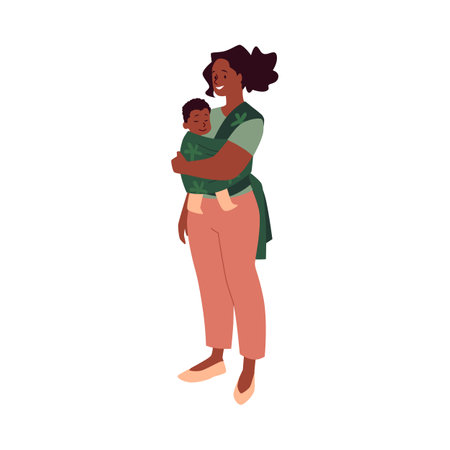Understanding Maternal Mental Health in the UK
Becoming a new mum is a massive change, and for many women in the UK, it’s not always the blissful experience that Instagram might have us believe. Postnatal mental health challenges like postnatal depression (PND), anxiety, and even post-traumatic stress can affect up to one in five mothers after childbirth. These are real issues that go beyond the usual “baby blues”—they can last for months if not addressed. As dads, we might not always know what to look out for, especially when we’re sleep-deprived ourselves, but understanding these challenges is key to supporting our partners.
Common Maternal Mental Health Challenges
| Condition | Typical Symptoms | UK Prevalence |
|---|---|---|
| Postnatal Depression | Low mood, withdrawal, feeling hopeless | 10–15% of new mums |
| Postnatal Anxiety | Irritability, racing thoughts, panic attacks | Around 13% |
| Postpartum Psychosis | Confusion, hallucinations, manic behaviour | 1–2 in 1000 births |
Why This Matters to Dads
The reality is that when mums struggle with their mental health, it affects the whole family—especially us dads. It can impact bonding with the baby, family routines, and even our own mental wellbeing. The pressures on families in the UK—from NHS waiting times to social stigma—mean that dads play a crucial role in spotting early signs and being part of the solution. By understanding what our partners might be going through, we’re better equipped to offer support and create a healthier environment for everyone at home.
2. Spotting Early Signs and Having Honest Chats
As a new dad in the UK, it’s easy to focus all your attention on the baby, but looking after your partner’s mental health is just as important. Maternal mental health issues like anxiety and depression can be hard to spot, especially with all the sleepless nights and new routines. However, fathers play a crucial role in recognising these signs early and supporting their partners through honest, open conversations.
Recognising Early Signs of Anxiety and Depression
Every mum is different, but there are some common signs that may signal your partner is struggling. Here’s a quick guide:
| Signs to Look Out For | What It Might Mean |
|---|---|
| Constant worrying or feeling overwhelmed | Possible anxiety |
| Trouble sleeping even when the baby sleeps | Stress or low mood |
| Loss of interest in things she used to enjoy | Potential depression |
| Withdrawing from friends and family | Feeling isolated or low |
| Crying more than usual or seeming irritable | Mood changes |
If you notice any of these signs, don’t brush them off as just “baby blues.” The earlier you spot them, the sooner you can support your partner in getting help if needed.
The Importance of Open, Non-Judgemental Conversation
Having an honest chat isn’t always easy—especially if you’re both shattered from night feeds! But creating space for non-judgemental conversation makes a massive difference. Remember, British culture often encourages us to “keep calm and carry on,” but bottling up feelings can make things worse.
Tips for Starting the Conversation
- Pick a quiet moment—maybe during a walk or when the baby is settled.
- Avoid judgemental language; use phrases like “I’ve noticed” or “How are you feeling?” rather than making assumptions.
- Listen without interrupting—sometimes just being heard can be a huge relief.
Real-Life Dad Tip:
I found that making a cuppa and sitting down together in the evening helped us both unwind and talk about our day honestly. You don’t need fancy words—just showing you care by listening goes a long way.

3. Getting Involved with Day-to-Day Care
As a new dad in the UK, it’s easy to feel a bit on the sidelines when it comes to baby care, especially in those early weeks. But getting hands-on with daily tasks isn’t just about sharing the load—it’s one of the most practical ways you can support your partner’s mental health and wellbeing. When dads get stuck into things like night feeds, nappy changes, or bath time, it gives mums a much-needed breather and shows you’re truly in this together.
Why Sharing Baby Care Matters
Let’s be honest, looking after a newborn is relentless. The constant cycle of feeding, changing, soothing, and trying to get some sleep can leave anyone running on empty. If one parent is carrying most of that weight, it can quickly lead to exhaustion and feelings of being overwhelmed—both of which are big risk factors for poor maternal mental health. By getting involved in day-to-day care, dads help break up that never-ending routine and give mums space to rest, recover, or even just enjoy a hot cuppa without interruption.
Everyday Tasks Dads Can Take On
| Task | How It Helps Mum |
|---|---|
| Night Feeds (if bottle feeding) | Lets mum get extra sleep and reduces fatigue |
| Nappy Changes | Saves time and helps prevent burnout from repetitive tasks |
| Settling Baby Back to Sleep | Gives mum a break during unsettled nights |
| Bath Time & Bedtime Routines | Allows mum to relax or focus on her own self-care |
Little Steps Make a Big Difference
You don’t need to take over everything at once. Even pitching in for one feed or nappy change a night adds up over time. It’s also a brilliant way for dads to bond with their baby—singing silly songs during bath time or chatting while doing the late-night bottle can be moments you’ll both treasure. Plus, as you both settle into new routines together, you’ll be building a real team spirit at home—which does wonders for everyone’s wellbeing.
4. Navigating the NHS and Local Support Services
As a new dad, I quickly realised that understanding the UK’s healthcare system is key to supporting your partner’s mental health after childbirth. It can be overwhelming, but knowing where to start makes a massive difference. Here’s a practical guide to help you both access the right support, whether it’s through your local GP, health visitor, or community resources.
Getting Started with Your GP
Your GP is usually the first port of call for any concerns about your partner’s mental wellbeing. Don’t hesitate to book an appointment if you notice signs of anxiety, low mood, or anything out of the ordinary. It’s normal for mums (and dads!) to feel a bit lost sometimes, so trust your instincts and encourage open conversations with your GP. They can refer your partner to specialist services or suggest local support groups tailored to new parents.
Health Visitors: More Than Just Baby Weigh-Ins
I used to think health visitors just came round to weigh the baby, but they’re actually a brilliant resource for parental mental health. Health visitors are trained to spot early signs of postnatal depression and can offer advice or connect you with extra help if needed. Make sure you’re both present during visits when possible, as it shows you’re in this together and helps normalise talking about mental health.
Local Support Options: What’s Available?
Across the UK, there are a range of local services designed to support families’ wellbeing. These might include parenting classes, peer support groups, drop-in clinics, and charities focused on perinatal mental health. Each area offers slightly different options—your GP surgery or children’s centre should have up-to-date details.
| Service Type | Where to Find It | What It Offers |
|---|---|---|
| GP Surgeries | Local NHS Practice | Mental health checks, referrals, medical advice |
| Health Visitor Teams | NHS Community Service | Home visits, emotional support, practical tips |
| Children’s Centres | Council-run Centres | Parenting groups, wellbeing workshops |
| Peer Support Groups | Charities/Community Halls | Shared experiences, social connection |
Dads Can Help Bridge the Gap
If your partner feels nervous or unsure about reaching out for help, you can offer to make calls together or go along to appointments. I found that simply being there made my wife feel less alone and more confident in speaking up about how she was really feeling. Remember, supporting her means advocating for both of you—after all, happy mums mean happier dads (and babies) too!
5. Looking After Yourself too
If there’s one thing I’ve learnt as a new dad in the UK, it’s that supporting your partner doesn’t mean ignoring your own wellbeing. In fact, your mental health is just as important. When you’re feeling strong and balanced, you’re better able to support your partner and family. It’s like on an aeroplane: you need to fit your own oxygen mask before helping others.
Why Fathers’ Mental Wellbeing Matters
It’s easy for us dads to put our feelings on the back burner, thinking “I’ll cope, it’s Mum who needs help.” But research shows that fathers can also experience anxiety, stress or even postnatal depression after a baby arrives. Ignoring these feelings can make things harder for everyone at home. When dads look after their mental health, it creates a supportive atmosphere where both parents can thrive.
Strategies for Self-care and Resilience
Self-care isn’t selfish—it’s essential. Here are some practical ways UK dads can keep their heads above water:
| Strategy | How to Apply in Daily Life |
|---|---|
| Stay Connected | Have regular catch-ups with mates, whether that’s down the pub, at the footie, or even just over WhatsApp. |
| Get Outside | A walk in the park with the pram or a quick jog around the block—fresh air does wonders for your mood. |
| Share How You Feel | Don’t bottle things up. Chat with your partner or reach out to support groups like DadsNet or local NCT meet-ups. |
| Rest When You Can | If baby naps, try to rest too—even if it’s just putting your feet up with a cuppa. |
Leading by Example
Your kids (even newborns) notice more than you think. By making self-care part of your routine, you show your children—and your partner—that looking after mental health is normal and important. This helps break down old-school taboos about men talking about their feelings and encourages everyone in the family to be open about how they’re really doing.
Final Thoughts
No one expects you to have all the answers. But by taking care of yourself, you’ll find you’re more patient, more present, and better equipped to support your partner through the ups and downs of early parenthood.
6. Building a Supportive Community
One thing I’ve truly come to appreciate as a new dad in the UK is the massive difference a supportive community makes, not just for mums but for us dads too. When you’re both tired, learning on the job, and sometimes feeling a bit out of your depth, having others who understand exactly what you’re going through can be a real lifeline. Connecting with other UK fathers and families isn’t just about swapping tips or sharing laughs over nappy disasters—it’s about creating a network that helps everyone feel less alone, especially when it comes to supporting maternal mental health.
The Importance of Dad Networks
In the UK, we’re lucky to have growing numbers of dad-focused groups, online forums, and local meet-ups. These spaces give us blokes a chance to chat honestly about our experiences—the tough bits as well as the good stuff—without any judgement. It’s not always easy to open up, but hearing “Me too, mate!” from another dad can be incredibly reassuring. Plus, these networks often share resources for both parents: where to find help if your partner is struggling with her mental health, how to balance work and family life, and even tips for keeping your own wellbeing in check.
Ways UK Dads Can Build Their Own Support Network
| Type of Support | Where to Find It |
|---|---|
| Local Dad Groups | Children’s centres, libraries, or community halls often host these – check council websites or noticeboards |
| Online Communities | Facebook groups like ‘Dadsnet’ or regional parenting forums such as Mumsnet (yes, dads are welcome!) |
| Parenting Classes & Workshops | NHS antenatal/postnatal classes and NCT events across the UK |
| Peer Support Networks | Charities like Home-Start UK offer support for new parents via home visits and group sessions |
Benefits for Both Parents
When dads make the effort to connect with others and build a support system, it isn’t just us who benefit—our partners do too. A solid community means there’s always someone to ask for advice or a helping hand when things get tough. It also normalises conversations about mental health so mums feel more comfortable seeking help if they need it. In my experience, knowing there’s backup if my partner needs a break—or if I need one—makes everything feel more manageable. At the end of the day, we’re all in this together, and building those connections can make parenthood a little less daunting and a lot more rewarding.


